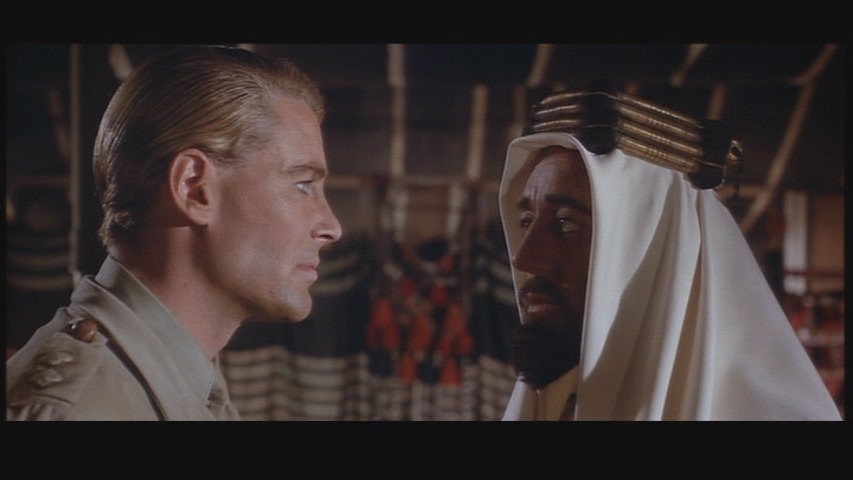 Peter O'Toole as Lawrence with Alec Guiness as Prince Feisal.
Peter O'Toole as Lawrence with Alec Guiness as Prince Feisal. I've often thought that today's literature, including its poetry, has just the opposite problem. It and it's writers sometimes seem so lacking in deep content as to contain little more than words. Which may be good for the authors. Their excellent word play, unfettered to content, could crown them as literary figures.
However, times have changed since Lawrence's era of mass nationalist movements . It could be said that these days every individual is part of the radical adventure of modern society, as it thrashes through its enormous upheavels. It could be said that no life under these conditions is empty. Day to day living is a constant war between one's anxious self and the world.
But back to WW1, and an Arabia which was then, in some ways, the equivalent of far earlier times in Europe.
If you've seen the movie, you may remember that early in his adventure Lawrence arrives at Sharif Feisal's large encampment. Feisel is the charismatic leader of the entire Arab revolt at this point. Lawrence in his army khakis sits on the carpet in Feisal's tent with the arab leaders, talks with them for some days, and they become impressed with him. In the following passage he describes Feisal's interest in poetry.
"In the evening he relaxed as far as possible and avoided avoidable work. He would send out for some local sheikh to tell stories of the district, and histories of the tribe and its genealogy; or the tribal poets would sing us their war narratives: long, traditional forms with stock epithets, stock sentiments, stock incidents grafted afresh on the efforts of each generation. Feisal was passionately fond of Arabic poetry, and would often provoke recitations, judging and rewarding the best verses of the night."
 RSS Feed
RSS Feed